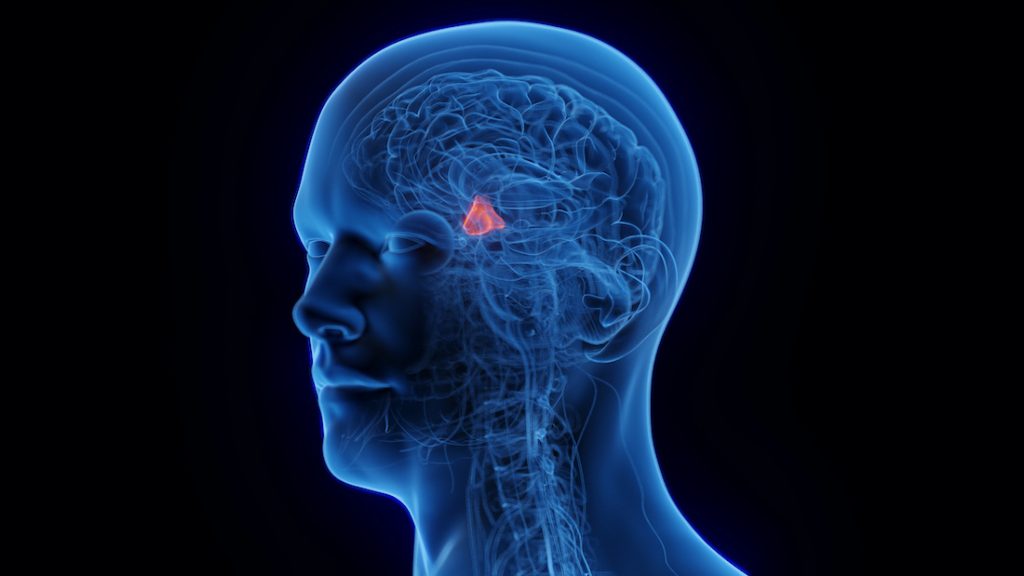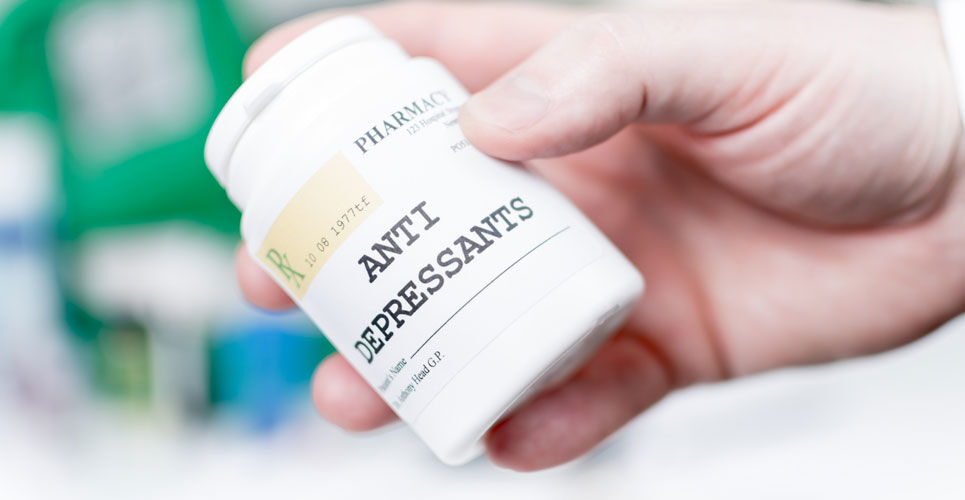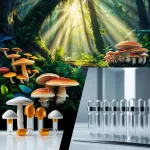Table of Contents
Nootropics, often referred to as “smart drugs,” are substances used to enhance cognitive function, including focus, memory, and mental clarity. Similarly, antidepressants are commonly prescribed to manage mental health conditions like depression and anxiety by regulating mood and neurotransmitter levels.
As nootropics and antidepressants both affect brain chemistry, many wonder if they can be safely combined for improved mental performance and emotional well-being. This article explores the potential interactions, benefits, and precautions of using nootropics alongside antidepressants to help you make informed decisions. And of course, answers the question: Can You Take Nootropics with Antidepressants?
What Are Nootropics?

Nootropics, commonly known as “smart drugs” or cognitive enhancers, are substances designed to improve mental performance. These compounds work by influencing brain processes such as neurotransmitter activity, blood flow, and cellular protection to boost focus, memory, creativity, and overall cognitive clarity.
Types of Nootropics
- Natural Nootropics: Derived from natural sources like plants and nutrients, examples include caffeine (for energy and alertness), L-theanine (for relaxation and focus), omega-3 fatty acids (for brain health), and natural nicotine (for enhanced cognitive clarity).
- Synthetic Nootropics: Lab-made substances such as Modafinil and Racetams, which are designed for specific effects, such as increasing wakefulness or improving memory.
Common Uses of Nootropics
People use nootropics to:
- Enhance focus and productivity during demanding tasks.
- Improve memory and learning abilities.
- Stabilize mood and reduce stress.
Nootropics are popular among professionals, students, and individuals seeking to optimize their mental performance. However, when combined with other medications like antidepressants, their effects may vary, requiring careful consideration and medical guidance.
What Are Antidepressants?

Antidepressants are medications designed to treat mental health conditions like depression, anxiety, and related mood disorders. They adjust the levels of specific neurotransmitters in the brain, such as serotonin, norepinephrine, and dopamine, to promote emotional balance and mental well-being.
Types of Antidepressants
Selective Serotonin Reuptake Inhibitors (SSRIs):
- Common examples: Fluoxetine (Prozac), Sertraline (Zoloft).
- Function: Increase serotonin levels in the brain to improve mood.
Serotonin-Norepinephrine Reuptake Inhibitors (SNRIs):
- Common examples: Venlafaxine (Effexor), Duloxetine (Cymbalta).
- Function: Boost both serotonin and norepinephrine for mood stabilization.
Tricyclic Antidepressants (TCAs):
- Common examples: Amitriptyline, Nortriptyline.
- Function: Affect serotonin and norepinephrine but often have more side effects.
Monoamine Oxidase Inhibitors (MAOIs):
- Common examples: Phenelzine (Nardil), Tranylcypromine (Parnate).
- Function: Prevent breakdown of neurotransmitters but require strict dietary restrictions.
How Antidepressants Work

Antidepressants adjust neurotransmitter levels to regulate mood and alleviate symptoms of depression and anxiety. The effectiveness of these medications can vary based on the individual, and they often take several weeks to show significant results.
While antidepressants play a crucial role in mental health management, combining them with other substances like nootropics may introduce interactions that need careful evaluation.
Potential Interactions Between Nootropics and Antidepressants
Combining nootropics with antidepressants requires caution, as both types of substances influence brain chemistry. Potential interactions can depend on the specific nootropic, the type of antidepressant, and an individual’s unique physiology.
How Nootropics and Antidepressants Interact
- Neurotransmitter Overlap
Both nootropics and antidepressants often target neurotransmitters like serotonin, dopamine, or norepinephrine. Combining them may amplify or counteract their effects, potentially leading to adverse reactions. For example: Mixing nootropics that boost serotonin (e.g., certain herbal supplements) with SSRIs could increase the risk of serotonin syndrome, a serious condition caused by excessive serotonin levels.
- Synergistic Effects
Some natural nootropics, like omega-3 fatty acids or L-theanine, may complement antidepressants by supporting mood stabilization or reducing anxiety without interfering with their mechanisms.
Risks of Combining Nootropics and Antidepressants
- Serotonin Syndrome: A potentially life-threatening condition characterized by symptoms like agitation, rapid heart rate, and confusion. This can occur when combining serotonergic nootropics with antidepressants.
- Overstimulation: Stimulants like caffeine or synthetic nootropics (e.g., Modafinil) could exacerbate side effects such as insomnia, anxiety, or restlessness in individuals taking antidepressants.
- Drug Metabolism: Both substances may compete for liver enzymes, altering the metabolism of one or both drugs and potentially leading to unexpected side effects or reduced efficacy.
Examples of Specific Interactions
- SSRIs and Caffeine: Moderate caffeine intake may be safe but could worsen anxiety or insomnia when paired with SSRIs.
- Natural Nicotine and Antidepressants: Controlled use of natural nicotine (e.g., Nic Nac Naturals) may enhance focus without directly interfering with antidepressants, but careful monitoring is necessary.
- Synthetic Nootropics and MAOIs: Nootropics like Modafinil can increase blood pressure and should not be combined with MAOIs, which already carry hypertensive risks.
Importance of Individual Factors
Each person’s response to the combination of nootropics and antidepressants is unique, influenced by factors like age, metabolism, and medical history. Consulting a healthcare provider before combining these substances is critical to ensuring safety and effectiveness.
Safe Nootropics to Use with Antidepressants

While combining nootropics with antidepressants requires caution, certain natural nootropics are generally considered safer due to their mild effects and established safety profiles. These options can complement antidepressants by enhancing focus, reducing stress, and supporting overall brain health.
Caffeine
Benefits
Caffeine is widely used to increase energy, alertness, and focus. For individuals taking antidepressants, it can help counteract fatigue often associated with medications like SSRIs and SNRIs.
Safety Considerations
- Limit intake to 200–300 mg per day to avoid overstimulation or worsening anxiety, especially for those already prone to restlessness or insomnia due to antidepressants.
- Consuming caffeine earlier in the day reduces the risk of sleep disturbances.
L-Theanine
Benefits
L-theanine, an amino acid found in tea, promotes relaxation without causing drowsiness. When paired with caffeine, it enhances focus while mitigating jitteriness, making it ideal for individuals with anxiety or stress.
Safety Considerations
L-theanine is considered safe to use alongside antidepressants, as it does not directly interfere with neurotransmitter activity.
Omega-3 Fatty Acids
Benefits
Omega-3 fatty acids, particularly DHA and EPA, are essential for brain health and have been shown to improve mood and cognitive function. They can enhance the effects of antidepressants by supporting emotional balance and reducing inflammation in the brain.
Safety Considerations
Omega-3s are well-tolerated and do not have known adverse interactions with antidepressants. Sources include fatty fish, fish oil supplements, and algae-based alternatives for vegetarians.
Natural Nicotine
Benefits
In controlled doses, natural nicotine enhances focus, memory, and cognitive clarity. Products like Nic Nac Naturals lozenges offer a safe alternative to traditional nicotine delivery methods, eliminating harmful additives found in cigarettes or vaping products.
Safety Considerations
While natural nicotine is generally safe in small amounts, it is important to monitor for overstimulation, particularly when combined with antidepressants that may already affect energy levels. Always consult a healthcare provider before use.
Other Safe Options
- Rhodiola Rosea: An adaptogen that reduces stress and fatigue without significant interactions with antidepressants.
- Bacopa Monnieri: Known for its memory-enhancing properties, Bacopa is considered safe but should be introduced gradually.
Nootropics to Avoid While Taking Antidepressants

While certain natural nootropics can safely complement antidepressants, others may pose risks due to their potential for interaction or adverse effects. Avoiding nootropics that interfere with antidepressant mechanisms or exacerbate side effects is crucial for maintaining safety and efficacy.
Synthetic Nootropics
Modafinil
Known for its wakefulness-promoting effects, Modafinil stimulates dopamine and norepinephrine pathways, which may overlap with those targeted by antidepressants. This can lead to overstimulation, anxiety, and increased blood pressure.
Racetams (e.g., Piracetam, Aniracetam):
Although used for memory and learning enhancement, Racetams lack substantial research on their safety when combined with antidepressants. Their impact on neurotransmitter activity raises concerns about unpredictable interactions.
High-Dose Caffeine
While moderate caffeine consumption is generally safe, excessive amounts (over 400 mg daily) can:
- Exacerbate anxiety and restlessness.
- Increase heart rate and blood pressure.
- Interfere with sleep, particularly for individuals prone to insomnia due to antidepressants.
Nootropics Affecting Serotonin Levels
Herbal supplements like St. John’s Wort significantly influence serotonin levels and may increase the risk of serotonin syndrome when combined with SSRIs or SNRIs.
Unregulated or Experimental Nootropics
Nootropics with limited safety data, such as newer synthetic compounds, should be avoided. These substances may carry unknown risks, particularly when combined with antidepressants, as they can alter neurotransmitter pathways unpredictably.
To ensure safety while taking antidepressants, avoid synthetic nootropics like Modafinil and Racetams, high doses of caffeine, and unregulated supplements. Always prioritize nootropics with well-documented safety profiles and consult a healthcare provider before use.
Tips for Combining Nootropics with Antidepressants

For those considering the use of nootropics alongside antidepressants, safety and informed decision-making are paramount. The following tips can help minimize risks and ensure effective use of both substances:
1. Consult a Healthcare Provider
Before introducing any nootropic, consult your doctor or mental health professional. They can:
- Assess potential interactions based on your specific antidepressant and nootropic choices.
- Provide dosage recommendations to avoid overstimulation or side effects.
- Monitor your progress to ensure safety and efficacy.
2. Start with Low Doses
Begin with the lowest possible dose of any nootropic to evaluate its effects on your body and mind. Gradually increase the dose only under medical supervision to avoid overwhelming your system or causing unintended interactions with antidepressants.
3. Focus on Natural Nootropics
Natural nootropics like omega-3 fatty acids, L-theanine, and controlled natural nicotine are generally safer than synthetic options. These substances have well-documented benefits and lower risks of adverse effects when paired with antidepressants.
4. Avoid Abrupt Changes
Do not abruptly stop or start either antidepressants or nootropics. Sudden changes in your regimen can disrupt neurotransmitter balance, leading to withdrawal symptoms or heightened side effects.
5. Monitor for Side Effects
Watch for any signs of adverse reactions, such as:
- Increased anxiety or restlessness.
- Insomnia or disrupted sleep patterns.
- Physical symptoms like headaches, nausea, or elevated heart rate.
If side effects occur, stop using the nootropic and consult your healthcare provider.
By following these tips, individuals can safely explore the potential benefits of combining nootropics with antidepressants while minimizing risks. Always prioritize professional guidance and choose well-researched, natural options for cognitive support.
Conclusion
Combining nootropics with antidepressants can offer enhanced cognitive and emotional support, but it requires careful consideration and personalized medical guidance. While natural nootropics like omega-3 fatty acids, L-theanine, and controlled natural nicotine can complement antidepressant therapy, synthetic nootropics or high doses of stimulants may pose significant risks.
Safety should always come first. Consult a healthcare provider before introducing any nootropic to your regimen, and prioritize research-backed options like Nic Nac Naturals for controlled and effective cognitive support. With informed decisions, you can safely enhance mental clarity while managing your mental health.

Hi, Dave Michaelson here, a longtime biohacker. I started this blog to help you focus on natural ways to improve health and performance. My work revolves around analyzing the science behind cognitive enhancers, nutrition, and longevity strategies. Natural nicotine products are one of my interests, particularly their effects on focus and energy. Everything I share is based on research and real-world application, ensuring practical, reliable insights. The information on my blog is not medical advice. Please do your own research.




